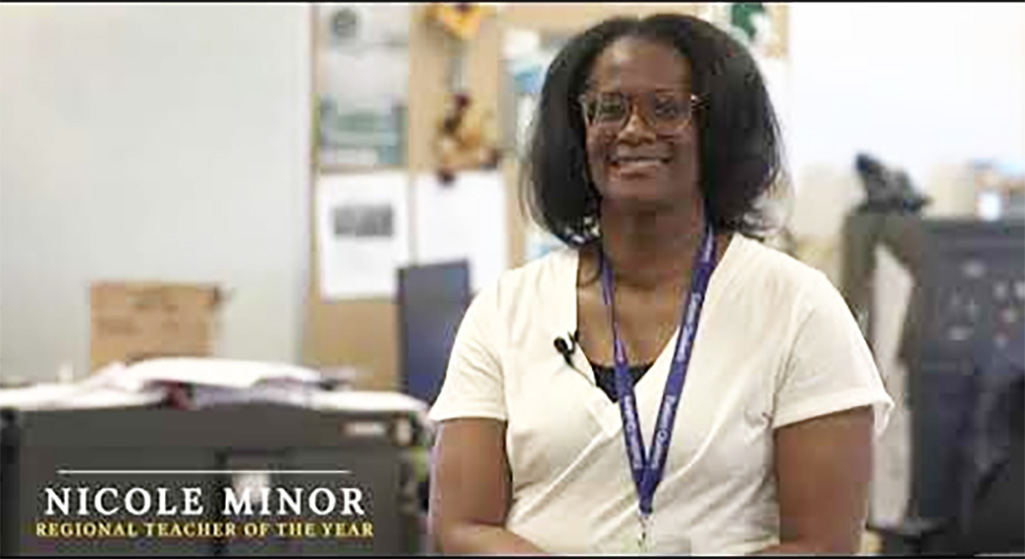This is the seventh in a series of guest blogs by the 2023-24 Michigan Regional Teachers of the Year. Nicole Minor is a mathematics teacher at Lansing Eastern High School in the Lansing School District.
Becoming a teacher is a noble profession. It is a profession in which we help shape the lives of our youth.
In the past few years, teaching has become about more than teaching content. Teachers support students in achieving their goals and dreams, and they work to ensure students have sound social-emotional well-being. Since the pandemic, it has become extremely important for teachers to incorporate social-emotional learning (SEL) activities for students into the classroom.
SEL has become an essential part of education. It enables young people, as well as adults, to develop healthy identities and attitudes, manage emotions, achieve personal goals, show empathy for others, maintain healthy supportive relations and make responsible decisions.
Teachers have been charged to integrate SEL into the classroom whenever possible. This can only be done if we intentionally practice SEL skills ourselves. Understanding the SEL competencies and how to utilize them in our everyday lives allows us to implement SEL activities in our classrooms more authentically.
As we become more aware of ourselves, our emotions and how to navigate them, we can help our students learn and practice those skills, as well. It’s important to model the SEL competencies and acknowledge the struggle that will occasionally come with the implementation of SEL lessons and activities. One of the competencies is self-awareness.
Modeling Self-Awareness
Being self-aware in the classroom can help us identify instances when we may not respond to a student’s behavior appropriately and, when necessary, right that wrong, whether it be an apology to a specific student or the class as a whole. Demonstrating reflection on the situation and the acknowledgement of the outcome can be a teachable moment for our students. It can teach them how to sincerely apologize when you are wrong, and that it is not a sign of weakness but actually strength.
Practicing self-awareness can also assist in identifying biases that could potentially affect our decision- making in the classroom with regard to our students. To combat this, we should learn about other cultures.
In December, my senior level class asked to have a culture day right before winter break to celebrate the differences in our classroom. They wanted to bring in a dish from their culture that they make during celebrations. I was actually very excited that they wanted to celebrate each other in this way because it showed me that they appreciate all of the differences everyone brings to our space. On the day of the celebration, we shared why we brought the dish and what it means to our families.
Learning about ourselves as educators enhances our teaching ability. When we take the time to be more conscious of who we are and how our experiences shape our decision-making it may cause us to adapt our strategies and lessons to allow more of our students to access the knowledge we are trying to help them attain.

